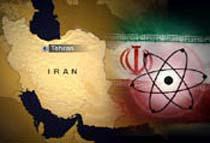-
(单词翻译:双击或拖选)
By Michael Bowman
Washington
24 August 2006
A U.S. congressional committee has issued a report alleging1 major gaps in U.S. intelligence on Iran's nuclear program and calling for a concerted effort to improve America's information-gathering capabilities2. Most experts on Iran agree with the basic premise3 of the report, but some question its underlying4 motives5.
---------
 |
||
The report says major gaps exist in U.S. knowledge of Iranian nuclear, biological, and chemical programs. It says, "The United States must collect more and better intelligence on a wide range of Iranian issues …The national security community must dedicate the personnel and resources necessary to better assess Iran's plans, capabilities and intentions."
That the United States would benefit from greater intelligence on Iran's nuclear ambitions is beyond question, according to former Deputy Assistant Secretary of State for Non-proliferation Mark Fitzpatrick, who currently directs the non-proliferation program at Britain's International Institute for Strategic Studies.
"I think it would be helpful to know more. It would be great to have more human [intelligence] assets," he said.
Fitzpatrick notes that the International Atomic Energy Agency has filed detailed6 reports on Iran's nuclear program - at least the portion of it that is openly acknowledged by Tehran.
"What is not known is whether Iran has a clandestine7 parallel [nuclear] program," he said. "There are many indications of some military connections to the nuclear program, and it would be very good to know more about those military connections. So, yes, there are big gaps [in what is known]."
On the other hand, Fitzpatrick says far more is known about Iran's nuclear activities than those of North Korea. But he adds that some of the worst fears about Iran's nuclear program have been fueled by statements from Iranian dissidents and exiles, and cannot be accepted blindly as fact.
Other former U.S. officials concur8 on the need for better intelligence on Iran. Gary Sick, who served on the National Security Council under Presidents Gerald Ford9, Jimmy Carter and Ronald Reagan, says the need is particularly acute in the wake of intelligence failures about Iraq's programs for weapons of mass destruction in the run-up to the 2003 U.S.-led invasion.
But Sick, who currently teaches Middle Eastern affairs at Columbia University in New York, says the House Intelligence Committee report released Wednesday is riddled10 with inaccuracies, including a statement that "Iran is currently enriching uranium to weapons grade" at the country's Natanz nuclear facility.
"Well, that site is actually under inspection11 by the IAEA, and it has produced thus far probably less than a gram of enriched uranium, and that enriched uranium is not at weapons grade. They [the committee] are simply making statements that are not true," he said.
Sick is quick to add that there is no question that Iran can be seen as a threat and that there is ample cause to be suspicious of Iran's nuclear intentions. But he notes that the House Intelligence Committee report makes no mention of IAEA reports based on actual inspections12 conducted in Iran that revealed little incontrovertible evidence of non-peaceful nuclear intent.
He says he fears that America's elected officials may be pressuring the intelligence community to produce information that conforms with U.S. policy objectives - in effect, repeating the dynamic that led to faulty assumptions about Iraq's development of weapons of mass destruction in 2003.
"The report gives, I think, an exaggerated view of what Iran is actually doing, and then it turns around and criticizes the intelligence services for not coming to the same conclusion that they have come to," Sick said. "And that looks very much like the kind of process that we had prior to the invasion of Iraq, and the one that came in for such tremendous criticism after we went into Iraq. I would really hate to see us going down that road a second time."
VOA sought comment from the House Intelligence Committee as well as the offices of ranking committee members. Calls were not returned.
Wednesday's committee report concludes that: "The U.S. Intelligence Community believes Iran could have a nuclear weapon sometime in the beginning to the middle of the next decade. The timetable for an Iranian program depends on a wide range of factors - such as the acquisition of key components13 and materials, successful testing, outside assistance, if any, and the impact of domestic and international political pressures."
Just how U.S. intelligence on Iran should be improved is a matter of debate. At Britain's Royal Institute for International Affairs, research Director Rosemary Hollis says the United States is hobbled by the lack of diplomatic relations between Washington and Tehran, noting that the United States "simply does not have the access."
 收听单词发音
收听单词发音
1
alleging

|
|
| 断言,宣称,辩解( allege的现在分词 ) | |
参考例句: |
|
|
|
2
capabilities

|
|
| n.能力( capability的名词复数 );可能;容量;[复数]潜在能力 | |
参考例句: |
|
|
|
3
premise

|
|
| n.前提;v.提论,预述 | |
参考例句: |
|
|
|
4
underlying

|
|
| adj.在下面的,含蓄的,潜在的 | |
参考例句: |
|
|
|
5
motives

|
|
| n.动机,目的( motive的名词复数 ) | |
参考例句: |
|
|
|
6
detailed

|
|
| adj.详细的,详尽的,极注意细节的,完全的 | |
参考例句: |
|
|
|
7
clandestine

|
|
| adj.秘密的,暗中从事的 | |
参考例句: |
|
|
|
8
concur

|
|
| v.同意,意见一致,互助,同时发生 | |
参考例句: |
|
|
|
9
Ford

|
|
| n.浅滩,水浅可涉处;v.涉水,涉过 | |
参考例句: |
|
|
|
10
riddled

|
|
| adj.布满的;充斥的;泛滥的v.解谜,出谜题(riddle的过去分词形式) | |
参考例句: |
|
|
|
11
inspection

|
|
| n.检查,审查,检阅 | |
参考例句: |
|
|
|
12
inspections

|
|
| n.检查( inspection的名词复数 );检验;视察;检阅 | |
参考例句: |
|
|
|
13
components

|
|
| (机器、设备等的)构成要素,零件,成分; 成分( component的名词复数 ); [物理化学]组分; [数学]分量; (混合物的)组成部分 | |
参考例句: |
|
|
|















